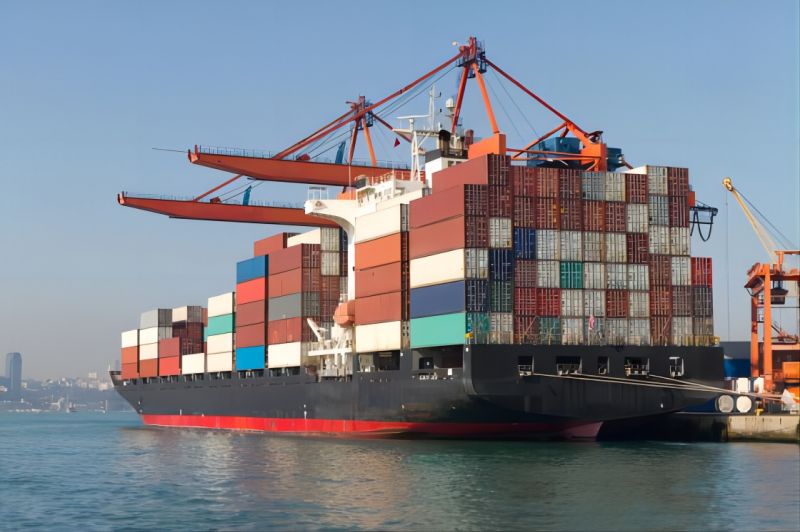Maersk imposes peak season surcharges (PSS) on multiple routes. Some international shipping routes have been booked until July.
From the initial tight space to the current shortage of empty containers and the difficulty in finding a cabin, the current freight rates can be said to have risen across all routes, especially the Latin American, European, North American and African routes, where the increase is more obvious. Some regional routes have been booked until July.

From the initial tight space to the current shortage of empty containers and the difficulty in finding a cabin, the current freight rates can be said to have risen across all routes, especially the Latin American, European, North American and African routes, where the increase is more obvious. Some regional routes have been booked until July.
The supply chain disorder caused by the mismatch between supply and demand will continue. The domestic rush to export and the overseas replenishment of inventory form a demand resonance, which supports short-term freight rates. With the full load of container shipping trunk lines, the overall container shipping market is still in the price increase channel in June.
Recently, Maersk, Hapag-Lloyd, CMA CGM and other shipping companies have issued announcements one after another, continuing to announce a new round of freight rate adjustment plans to levy peak season surcharges PSS, etc., involving routes such as Africa, South America, the Middle East, and North America...
Yesterday, the shipping company issued three consecutive notices! A new wave of price increases is coming! It was mentioned in the article that Maersk issued price increase notices on May 20, levying peak season surcharges in Sihanoukville, Cambodia, many African countries, and many Middle Eastern countries. The following is a further summary of other regions and countries where Maersk will levy peak season surcharges in June.
Maersk will levy a peak season surcharge (PSS) on refrigerated containers from Far East Asia to the West Coast of South America, Central America and the Caribbean from June 1.
From Asia (excluding Taiwan, China) to the West Coast of South America (excluding Colombia, Puerto Rico, the Virgin Islands and Guam), the effective date is June 1, 2024;
From Asia to Colombia, Puerto Rico, the Virgin Islands and Guam, the effective date is June 9, 2024;
From Taiwan, China to the West Coast of South America and Central America and the Caribbean, the effective date is June 9, 2024.
The levy standards are as follows:
Maersk’s official website announced that from June 1, the peak season surcharge (PSS) for all dry containers from Far East Asia (excluding Taiwan, China) to the East Coast of South America, Argentina, Brazil, Paraguay and Uruguay will be revised (increased), and Taiwan, China will take effect from June 31. The collection standards are as follows:
Maersk announced that it will collect a peak season surcharge (PSS) for all types of containers from Far East Asia to Pakistan and India (the discharge ports are Nehru Port, Nidra Port and Nissim Port in India) from June 1, 2024. The collection standards are as follows:
Maersk will adjust the peak season surcharge-PSS from Brunei, China, Hong Kong, Vietnam, Indonesia, Japan, Cambodia, South Korea, Laos, Myanmar, Malaysia, the Philippines, Singapore, Thailand, Timor-Leste and Taiwan to Saudi Arabia from June 1. The effective date for Taiwan is June 16, 2024. The collection standards are as follows:
Maersk announced that it will increase the peak season surcharge-PSS from China and Hong Kong, China to Tanzania, and the collection standards are as follows:
It is worth mentioning that Maersk will increase the peak season surcharge-PSS from June 1, 2024, and impose a PSS of US$3,500 on all 20-foot dry containers and refrigerated containers from Brunei, Vietnam, Indonesia, Cambodia, Laos, Myanmar, Malaysia, the Philippines, Singapore, Thailand and Timor-Leste to Kenya and Tanzania, and up to US$5,000 PSS on all 40-foot dry containers, refrigerated containers and 45-foot high cabinets.
Hapag-Lloyd charges PSS from Asia to African destinations
Hapag-Lloyd announced that the peak season surcharge (PSS) will take effect from multiple destinations in Asia to Africa. From June 1, 2024, this PSS applies to all container types until further notice. The specific charging standards are as follows:
Hapag-Lloyd charges PSS from East Asia to North American destinations
Hapag-Lloyd announced that the peak season surcharge (PSS) will take effect from East Asia to North America. At the same time, the charging standards from June 1 to June 14 and June 15, 2024 are released. This PSS applies to all container types until further notice. The specific charging standards are as follows:
CMA imposes peak season surcharge PSS from Asia to East Africa, South Africa, West Africa and the Indian Ocean
In order to continuously provide customers with reliable and efficient services, CMA CGM Group notifies its customers of the following peak season surcharge PSS. The details of the collection standards are as follows:
From May 20, 2024 (loading date) until further notice: Dry containers/high containers/refrigerated containers/bulk cargo from China, Taiwan, China, Hong Kong and Macau, destinations: South African ports, Kenya (Mombasa), Tanzania (Dar es Salaam and Zanzibar), Mauritius (Port Louis), Madagascar (Tamatov), Maldives (Male) and Somalia (Mogadishu), US$1,000 per 20-foot container/US$2,000 per 40-foot container
From May 22, 2024 (loading date) until further notice: Dry containers/high containers/refrigerated containers/bulk cargo from China, Taiwan, China, Hong Kong and Macau, destinations: Mozambique ports, US$700 per 20-foot container/US$1,400 per 40-foot container USD
From May 20, 2024 (loading date) until further notice: dry containers from North China and Central China, destinations: North West Africa (Liberia, Senegal, Mauritania, Gambia, Guinea, Sierra Leone, Guinea-Bissau, Cape Verde, Sao Tome and Principe), USD 1,500 per TEU.
For specific levy information, please contact the corresponding shipping company in advance. Other shipping companies may also have similar measures to increase freight rates.